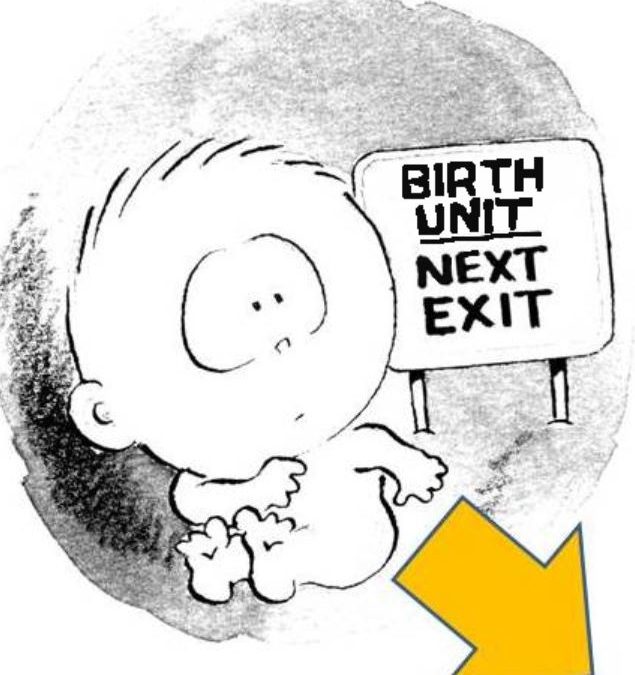This is a popular question as a woman approaches her due date.
It can be prompted by her excitement and being very keen to meet her baby. It is sometimes triggered by her increasing pregnancy discomfort and her adverse symptoms. Sometimes it is because family members and others are encouraging her to find out so they can plan their commitments. It can be because family are coming from overseas, and they want to book flights. It can be because her boss is putting pressure on her at work (when is she leaving?), or her husband is trying to plan when he will need to take time off work. And there can be other reasons.
Unless a woman is having an elective Caesarean section delivery or her labour is being induced, it is impossible to know. It is not like booking a holiday or hotel room. The EDC (expected date of confinement) is only a guide. A woman commonly goes into labour before or after her EDC. Only about 5% of babies are born on the EDC date. The baby’s actual birth date is up to her body to decide.
Biological clock
Every woman has her own biological clock. Sometimes this clock is set so she goes into labour earlier than her EDC and sometimes this clock is set so she goes into labour later than her EDC. Some women go into labour very early, without any adverse pregnancy developments being the cause. Very occasionally it is when she is still in her 20 – 30 weeks gestation period. It can be when she is between 30- 36 weeks gestation. It is more common after 36 weeks and as she gets closer to her EDC. On the converse, some women will go very late, even to 44- or 45-weeks gestation before the onset of spontaneous labour.
Past history is important.
Continuing the biological clock theme, if a woman goes into labour before her EDC with her first pregnancy, she is likely to repeat this and goes into labour before her EDC with subsequent pregnancies. If she goes into labour very early with her first pregnancy (without any adverse pregnancy developments being the cause) she is likely to go into labour earlier than her EDC with subsequent pregnancies. But the onset of labour in her second and subsequent pregnancies is likely to be at a later gestation (usually 36+ weeks).
If a woman goes overdue with the first pregnancy, it is very likely she will go overdue with subsequent pregnancies.
Family history is not important.
As a general rule, family history is not important. I am often asked: “Mum had her babies early. Will I do the same?” The answer is: “No”, or there are occasional exceptions.
Preterm labour and an irritable uterus during pregnancy.
These are not definite indications a women will go into labour before her EDC. While a woman who has been in preterm labour or has excessive uterine irritability commonly labour before her EDC, there have been many occasions when patients have had these issues and yet I have had to induce labour because they went overdue.
Physical examination findings.
- Baby’s head is engaged. This is positive sign labour’s onset will be soon. Baby’s head pressing on the cervix can stimulate the cervix. But baby’s head can, on occasions, be engaged for week before the onset of labour. You cannot be certain if baby’s head is engaged that the onset of labour is imminent. The converse is also true. A woman can go into labour before baby’s head is engaged. The baby’s head does not need to be engaged for labour to start.
- Cervix is ripe. With an internal examination is can be determined if the cervix is softening, opening and shortening. These positive changes suggest labour may be soon. But a woman can have a ripe cervix for weeks before the onset of labour. As well I have many times has patients where the cervix is long and closed on examination and yet spontaneous labour happens within days of the internal examination.


